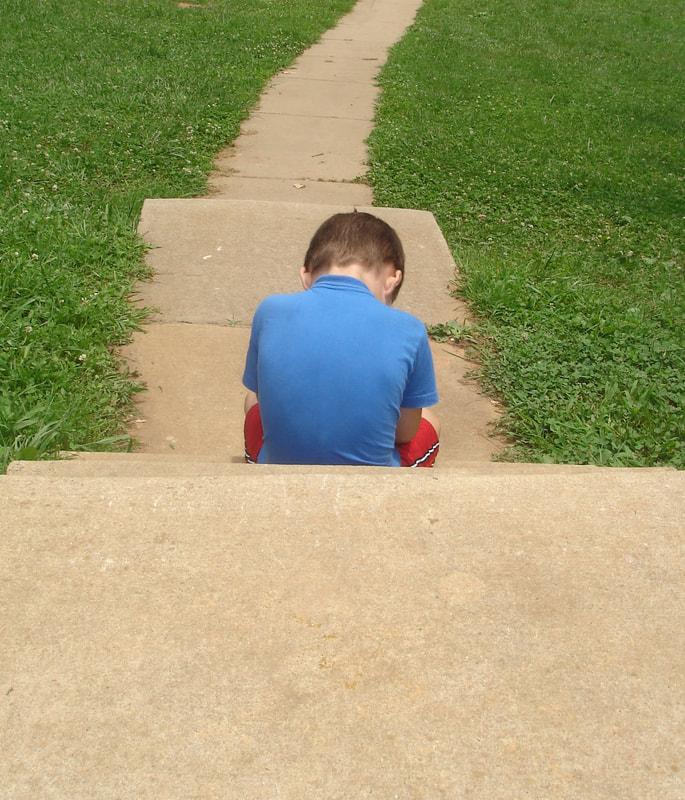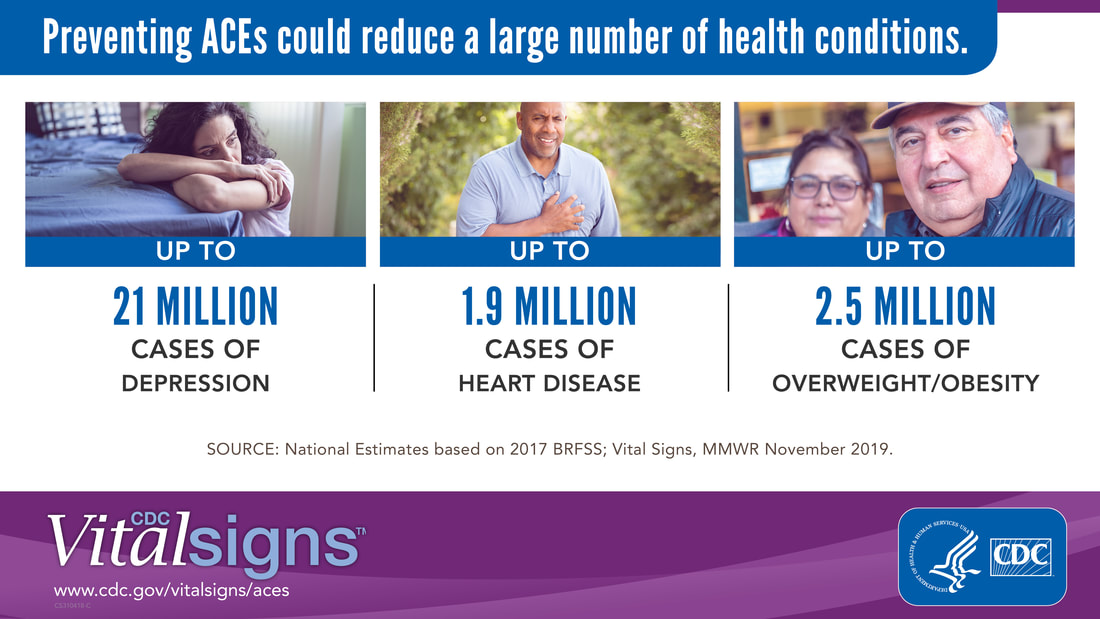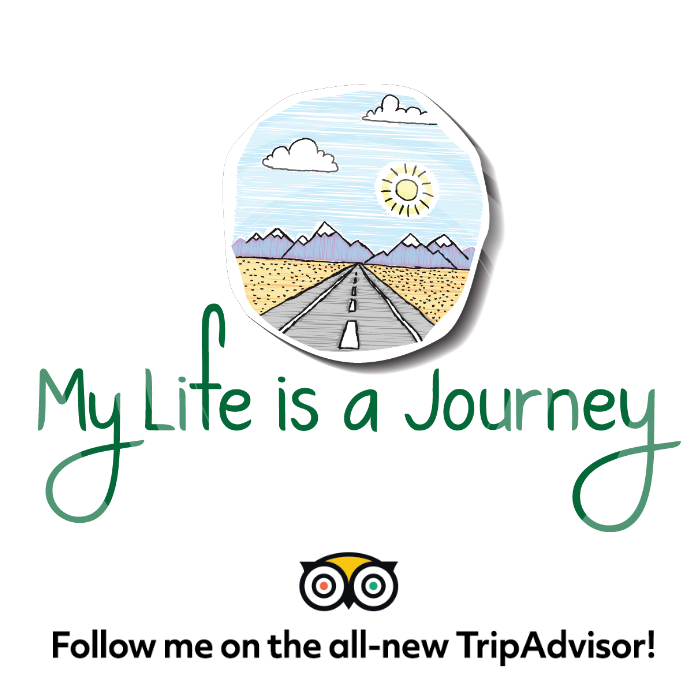|
This post is made possible with support from the American Academy of Pediatrics through a cooperative agreement with the Centers for Disease Control and Prevention. All opinions are my own.
We all know that depression in adults can be related to stressful situations at work, home, and even hormonal imbalances. However, did you know that there is a link between Adverse Childhood Events (ACEs) and depression in adults? Reality is that addressing ACEs in childhood could reduce the number of adults with depression by as much as 44%.
So what are Adverse Childhood Events
According to CDC, Adverse Childhood Events (ACEs) are potentially traumatic events that occur in childhood (0-17 years). For example:
As you can imagine, ACEs can have lasting and negative effects on the child’s health that can lead to several chronic diseases and leading causes of death such as cancer, diabetes, heart disease, and suicide. Plus, ACEs are linked to chronic health problems, mental illness, and substance misuse in adulthood. ACEs can also negatively impact education and job opportunities.
However, ACEs can be prevented and the potential reduction of negative outcomes in adulthood by preventing ACEs is pretty remarkable, as you can see in this figure. How to prevent ACEs
ACEs and their associated harms are preventable. Everyone can play a role in building safe, stable, and nurturing relationships and environments for children.
One of the first steps we have to do is create awareness and help others understand what ACEs are. Acknowledging that there is a problem is a great place to start. Then we have to analyze the causes and what we can do as a society to help.
[object Object]
But we are all part of the solution, too. If you are part of a church group, PTA, girls or boy scouts, or any other group, you can help educate others. We all need to know where to find resources we can rely on. It is recommended that you #FindYour3.
This means find three support systems. They can be people, services, or community resources. This support system prevents or mitigates the effects of ACEs in your home or your friend’s home. Parental stress plays a huge factor in ACEs. Who can be part of your three? #findyour3
Think of people who can support you or your kids. Friends, teachers, pastors, community leaders, and even your doctor.
Stop for a minute here and think who can you or your kids turn to for support during difficult times? Can you name your three? I know I can. I would reach out to my best friend, my aunt, and my doctor. We all need to find our three. But here’s the thing: The people I am reaching out to also need their three. It is a chain. We all find our three to prevent ACEs. Remember YOU can be that safe, stable, nurturing relationships for others in your community. A piece of advice. As much as I want to be part of my son’s three, it might be helpful to teach him that he needs other trusted adults in his life to talk about issues. So I am talking with him, and I am asking him to create a list with his three. I am taking my son out for a “date” so we can talk more about who his three should be. I am going to have a few suggestions for him, but I am going to let him choose them based on how confident he is going to feel talking about his personal life with them. The people that I am going to suggest to my son: The coach at the chess team, the team leader at the Boy Scout troop, and his doctor. They are all people he trusts, and they are available to him on an ongoing basis. When I moved to the US from Colombia and picked my three, I realized that although one of my three was a wonderful person, they were not available for me when I needed them. I learned then and will be passing the words of wisdom to my son. Make sure your three know why you choose them and that they can be there for you. Build a network around you with supportive people. It might change someone's life, including your own!
11 Comments
2/7/2020 08:08:10 am
Reply
Melissa Cushing
2/7/2020 10:54:55 am
Thank you for sharing and a very informative post that everyone should read, especially before deciding on having a family. Sometimes people overcome things like this and are stronger for it and others not so much so I appreciate you sharing and educating everyone on this important topic.
Reply
Cathy
2/8/2020 11:48:52 am
This is beyond informative. Thank you for sharing this. So many people can benefit from reading all about how to prevent this!
Reply
2/8/2020 12:18:13 pm
I agree, that as a parent, it is so important for us to build a safe and stable environment for children, so thank you for enforcing that
Reply
Rosey
2/8/2020 12:27:56 pm
As a teacher, I see so many situations affecting children. Good and bad. The latter are sad to see.
Reply
Thanks for sharing this helpful post! It's important to realize how childhood events both positive and adverse, can shape our lives and futures. If we keep this in mind and help kids with their trusted 3, hopefully we can reduce the issues that may come up later in life. Tx again for sharing!
Reply
Lisa
2/9/2020 03:21:27 am
I don’t have kids (yet), but I read this with great interest. You’ve given me some good points to think about, and I'll be mindful of this for the future.
Reply
Windy
2/10/2020 10:29:05 am
This is truly an important conversation to have. So many children go through a lot of trauma and this would be helpful to help them.
Reply
2/10/2020 02:22:52 pm
As a parent, I'm always wondering what is affecting my child negatively and what is not. This was a super informative post!
Reply
Leave a Reply. |
Categories
All
Archives
May 2023
|






 RSS Feed
RSS Feed

